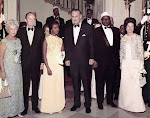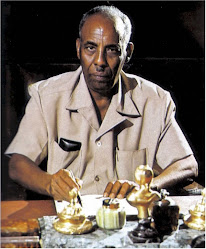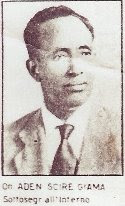International Crisis Group : Assessing Turkey’s Role in Somalia
Assessing Turkey’s Role in Somalia
Africa Briefing N°92
8 Oct 2012
OVERVIEW
Turkey is the newest country to intervene in Somalia and its involvement has produced some positive results. Prime Minister Recep Tayyip Erdoğan’s courageous visit to Mogadishu in August 2011 at the height of the famine and his decision to open an embassy gave fresh impetus to efforts to establish lasting peace. Widespread Somali gratitude for Turkish humanitarian endeavours and the country’s status as a Muslim and democratic state established Turkey as a welcome partner. Ankara has signalled it is in for the long haul. However, it must tread prudently, eschew unilateralism and learn lessons to avoid another failed international intervention. Over twenty years, many states and entities have tried to bring relief and secure peace in Somalia, often leaving behind a situation messier than that which they found. Ankara must appreciate it alone cannot solve the country’s many challenges, but must secure the support and cooperation of both the Somali people and international community. Trying to go solo could backfire, hamper ongoing efforts and lose the immense good-will it has accumulated.
Assessing Turkey’s Role in Somalia
Africa Briefing N°92
8 Oct 2012
OVERVIEW
Turkey is the newest country to intervene in Somalia and its involvement has produced some positive results. Prime Minister Recep Tayyip Erdoğan’s courageous visit to Mogadishu in August 2011 at the height of the famine and his decision to open an embassy gave fresh impetus to efforts to establish lasting peace. Widespread Somali gratitude for Turkish humanitarian endeavours and the country’s status as a Muslim and democratic state established Turkey as a welcome partner. Ankara has signalled it is in for the long haul. However, it must tread prudently, eschew unilateralism and learn lessons to avoid another failed international intervention. Over twenty years, many states and entities have tried to bring relief and secure peace in Somalia, often leaving behind a situation messier than that which they found. Ankara must appreciate it alone cannot solve the country’s many challenges, but must secure the support and cooperation of both the Somali people and international community. Trying to go solo could backfire, hamper ongoing efforts and lose the immense good-will it has accumulated.
Turkey’s presence on the ground is relatively small, but because of its timely famine relief and the apparent strength of its commitment, as well as Somalis’ gratitude, its contribution is seen as colossal. In addition to its embassy, there are about a dozen governmental and non-governmental organisations (NGOs) with a limited presence on the ground working in Mogadishu. But Somalis’ dream of a quick and comprehensive recovery has created great expectations in the regions that are not receiving Turkish assistance, particularly because of their highly visible activities in Mogadishu. Yet, besides generous diplomatic and political support, its means are modest and its material support to Somalia will probably remain limited. If the Somali people’s high expectations are not moderated and if Ankara is unable to expand its relief and development aid to peaceful regions outside Mogadishu, the Turkey-Somalia partnership could be strained or quickly transformed into a relationship beset by resentment.
Vocal Somali criticism of the two conferences (civil society and government) held in Istanbul from late May to early June 2012 should serve as an important reminder about the volatility of and multiple fault lines in Somali politics. Somalia’s main political actors backpedalled on clear political understandings they had with Ankara (such as the traditional elders’ planned trip to Istanbul to participate in the civil society gathering) and openly criticised and confronted their host on seemingly benign issues. Turkey overcame these unexpected impediments because of diplomatic insights gained from its on-the-ground presence and support from international partners. It should use its new experience to build consensus and improve external coordination if its intervention is to be effective.
As a new Somali government is established, Turkey is expected to, and can, play an important role in helping stabilise and develop the war-ravaged country. In order to play a major and sustained role in Somalia, Ankara should:
•lay out a public, clear and realistic long-term strategy for its Somalia policy, backed by secure funding and an increase in the number of specialists in both Mogadishu and Ankara dedicated to its efforts in Somalia, and in particular build up its knowledge of Somalia and coordinate with other countries and international agencies active in the country;
•remain impartial in internal politics and avoid being manipulated by Somali politicians long experienced in outwitting foreign newcomers;
•expand targeted assistance to peaceful regions outside of Mogadishu;
•prioritise institution building and knowledge transfer, including investing in the return of educated diaspora Somalis;
•help with political party development, constitutional reform and the creation of accountable institutions;
•take a more active role in UN peacebuilding efforts;
•manage Somali expectations of how much assistance it can provide;
•establish a standardised and transparent bidding process for contracts and subcontracts to avoid empowering predatory businesspeople;
•offer mediation expertise and financial assistance to peace and reconciliation efforts;
•stop being indifferent to the endemic Somali corruption and tie diplomatic and development assistance to upholding the rule of law and establishing accountable and effective institutions;
•provide more support to AMISOM and integrate security assistance within existing international mechanisms, rather than embarking on a parallel and duplicate process;
•help Somalia create a professional, decentralised police force, which, rather than external forces such as AMISOM, will be responsible for the consolidation of peace and security;
•coordinate with other countries and international agencies to prevent overlap and ensure aid is provided strategically;
•ensure Turkish businesspeople operating in Somalia neither exploit vulnerable Somalis nor are exploited by Somali elite; and
•support the Joint Financial Management Board agreed to at the London and Istanbul conferences to ensure that government revenue and international assistance is used appropriately and efficiently.
This briefing outlines Turkey’s ongoing operations and achievements so far. As Somalia enters a new and uncertain post-transition phase, Ankara may likely face obstacles and will run into the country’s complicated political and security environment in delivering on numerous expectations as its honeymoon with Somalis ends. To avoid this, the briefing suggests practical steps to make the Turkish-Somalia cooperation sustainable and mutually beneficial.





.jpg)











No comments:
Post a Comment